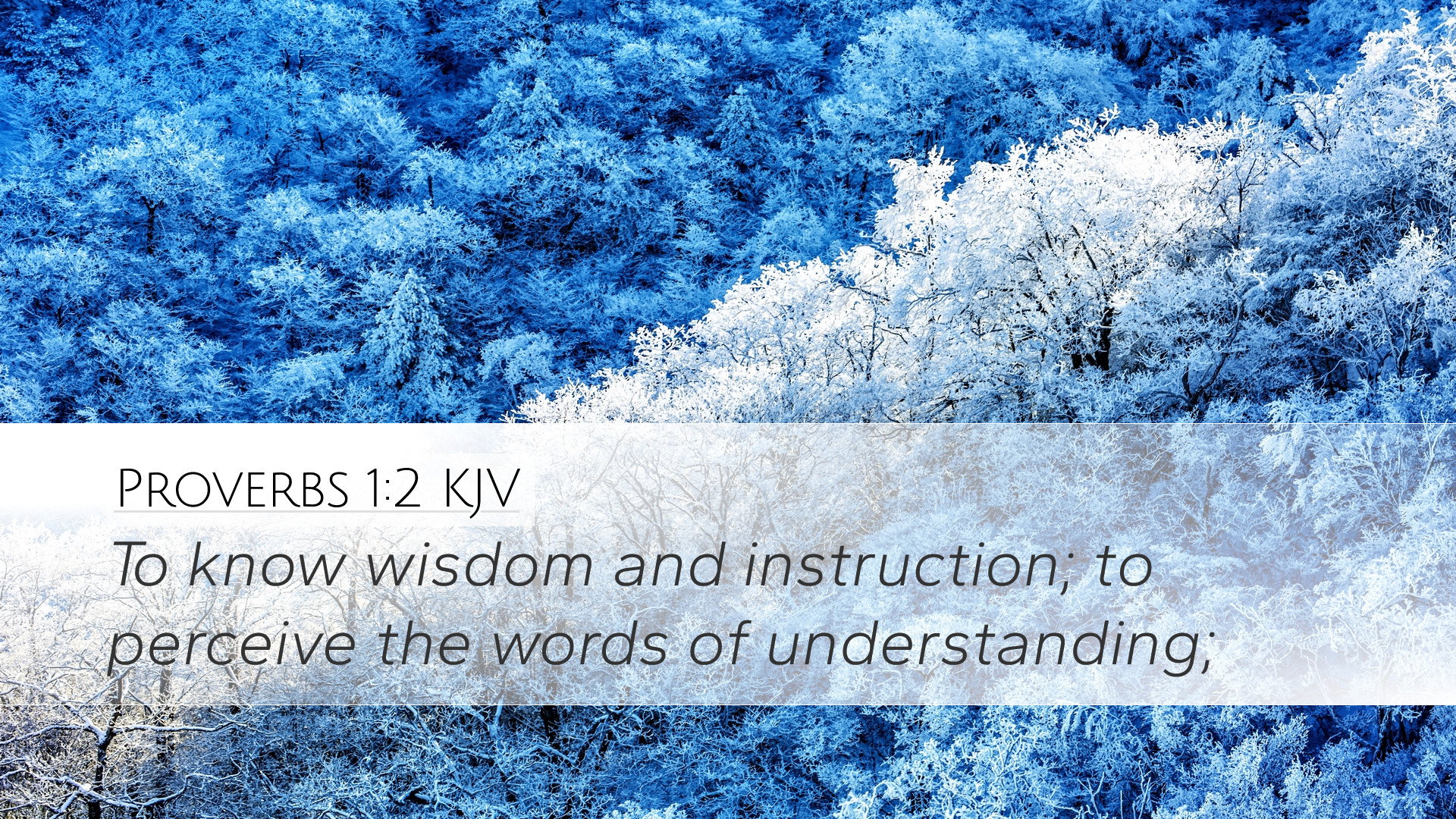Commentary on Proverbs 1:2
The Book of Proverbs serves as a profound source of wisdom for both practical living and spiritual growth. In this commentary, we delve into Proverbs 1:2, which states:
"To know wisdom and instruction; to perceive the words of understanding."
Introduction to Wisdom in Proverbs
This opening verse of Proverbs encapsulates a core theme of the book: the pursuit of wisdom. It establishes the intent behind the collection of sayings and instructions that follow.
Insights from Matthew Henry
Matthew Henry emphasizes that the pursuit of wisdom is foundational to a virtuous life. He asserts that:
- Wisdom is fundamentally an understanding of God’s creation and order.
- Instruction points to the disciplined learning process necessary to acquire wisdom.
- Henry correlates wisdom with the practical application of knowledge gained through understanding.
He observes that true wisdom stems from the fear of the Lord, positioning reverence as the starting point for understanding.
Albert Barnes' Commentary
Albert Barnes provides a detailed analysis of each component of verse 2:
- To know wisdom: Barnes describes wisdom as not merely intellectual but as a dispositional quality that leads to right living and decision-making.
- To instruct: Emphasizing the dual role of instruction, he notes that it encompasses both learning from others and imparting knowledge to others.
- To perceive the words of understanding: Here, Barnes notes that perception implies a deeper level of engagement with knowledge—understanding that leads to actionable insight.
Barnes argues that the significance of this verse lies in its call for believers to engage actively in the pursuit of wisdom through both learning and application.
Adam Clarke's Perspective
Adam Clarke expands on the implications of wisdom in both a moral and spiritual context. Clarke notes:
- Wisdom encompasses knowing how to navigate life’s complexities prudently.
- The mention of "instruction" reflects a broader educational framework, indicating the value of mentorship and guidance.
- Understanding is highlighted as the key to applying wisdom effectively in everyday situations.
Clarke underlines that wisdom does not exist in a vacuum; rather, it is imperative to live out one's understanding through wise actions, reflecting their beliefs and knowledge.
Theological Reflections
When synthesizing these insights, several theological reflections emerge:
- The Nature of Wisdom: Wisdom in Proverbs is seen not just as intellectual acumen but as an essential trait that aligns one’s life with God’s purposes.
- Instruction as Lifelong Process: The framework of instruction indicates that acquiring wisdom is a continuous journey rather than a one-time event.
- Understanding as Transformative: The active engagement with understanding transforms one's perspective, enabling clearer discernment of ethical choices.
Application for Pastors and Theologians
Pastors, students, and theologians can draw several applications from Proverbs 1:2:
- Encouraging a Culture of Learning: Churches and academic institutions are encouraged to cultivate environments where wisdom is diligently sought through study, discussion, and reflection.
- Modeling Wise Living: Leaders in faith communities should exemplify wise living, demonstrating how to apply biblical truths in practical ways.
- Mentorship and Discipleship: Emphasis on mentoring relationships is crucial, where seasoned believers guide newer followers in understanding and applying wisdom.
Conclusion
Proverbs 1:2 invites all followers of Christ to embark on a journey toward wisdom. By understanding its importance, engaging in instruction, and perceiving knowledge deeply, believers can navigate life’s complexities in a manner that honors God. The insights from Henry, Barnes, and Clarke serve as invaluable reminders of the multifaceted nature of wisdom and its centrality to a faithful and fruitful life.


